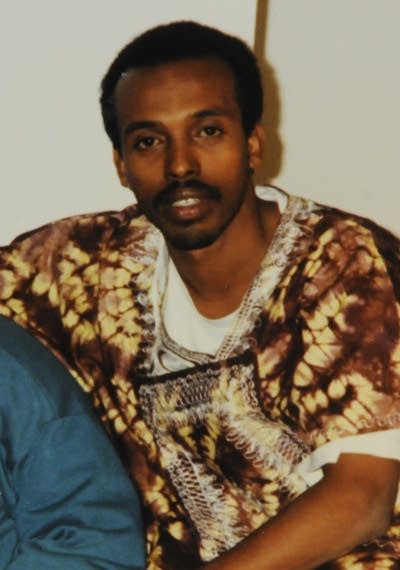Minn. trial could expose al-Shabab recruiting

The first trial in the government's investigation into al-Shabab recruitment in Minnesota is set to begin today with jury selection.
Mahamud Said Omar, a former janitor at a Minneapolis mosque, is charged with facilitating a second wave of young Twin Cities men who traveled to Somalia in 2008 to join the extremist group. Federal prosecutors say Omar, 46, helped the young men acquire their plane tickets and pay for their AK-47 assault rifles.
New details of how at least some of the roughly 20 young men were radicalized in Minneapolis will come to light at trial, said Jeanne Cooney, a spokeswoman for the U.S. Attorney's Office in Minneapolis. The government has been investigating Minnesota ties to al-Shabab for at least four years, and 18 people have been charged so far in the case.
But Omar's case is the first to play out in the public eye and before a jury.
Create a More Connected Minnesota
MPR News is your trusted resource for the news you need. With your support, MPR News brings accessible, courageous journalism and authentic conversation to everyone - free of paywalls and barriers. Your gift makes a difference.
"This represents the first time the government will discuss - and the people will be able to see firsthand - what we've been working on for the past several years," Cooney said. "They'll be able to hear the stories of people who have lost family members to the fight in Somalia. They will hear from investigators and others in the community who have been dealing with this issue, day in and day out."
But Omar's attorneys maintain that the defendant, who has suffered from seizures and has admitted in court to seeing ghosts, did not recruit or radicalize anyone.
"He didn't do it," said defense attorney Jon Hopeman. "He was the janitor in the mosque, making three dollars an hour. He barely finished high school. He's been very ill the last number of years. The evidence will show he never spoke or acted against the interest of the United States."
Hopeman said the government has built its case on the false testimony from three cooperating witnesses who have already pleaded guilty to traveling to Somalia with the intent of joining al-Shabab. Salah Ahmed, Abdifatah Isse and Kamal Hassan were among the first wave of travelers, who agreed to fight the jihad to oust Ethiopian troops from their homeland.
The three men are expected to be among the 25 witnesses the government is expected to call to testify for a trial that could last three weeks. Prosecutors have charged him with five counts, including conspiracy to kill or maim others overseas and providing material support to terrorists. Omar's family has said he was financially broke, mentally unwell, and incapable of helping run a terrorist pipeline.
The government thinks otherwise. In a trial brief filed Friday, prosecutors spelled out Omar's alleged role in the conspiracy. They say he provided several hundred dollars to be used as "pocket money" by the travelers.
He left the United States on Jan. 22, 2008, and eventually arrived at an al-Shabab safe house in the Somali port of Marka, where seven men who made up the first wave of Minnesota fighters were staying. Omar provided money to help pay for the firearms, according the brief.
He then traveled to the agricultural city of Bardera, where he got married.
When the remaining men from Minneapolis arrived at a second al-Shabab safe house, they claimed their AK-47s and ammunition. One rifle had Omar's name on it, but he wasn't there to receive it, prosecutors allege.
Omar returned to Minnesota in April 2008 and continued in the operation of sending men over to Somalia to join al-Shabab, the government contends. The trial document said he accompanied Mohamed Hassan and Mustafa Salat, then both in their teens, to the airport.
Later that fall, days after one of Shirwa Ahmed of Minneapolis detonated himself in a suicide bombing in Somalia, Omar remained involved in the conspiracy, prosecutors allege. They say he accompanied six additional men to a travel agency in the Stadium Village area of Minneapolis to help them purchase their tickets.
Since the first departures in 2007, at least nine of the Minnesota fighters are believed dead. Authorities believe eight are still at large in Somalia.
---
• Follow Laura Yuen on Twitter: http://www.twitter.com/laura_yuen
